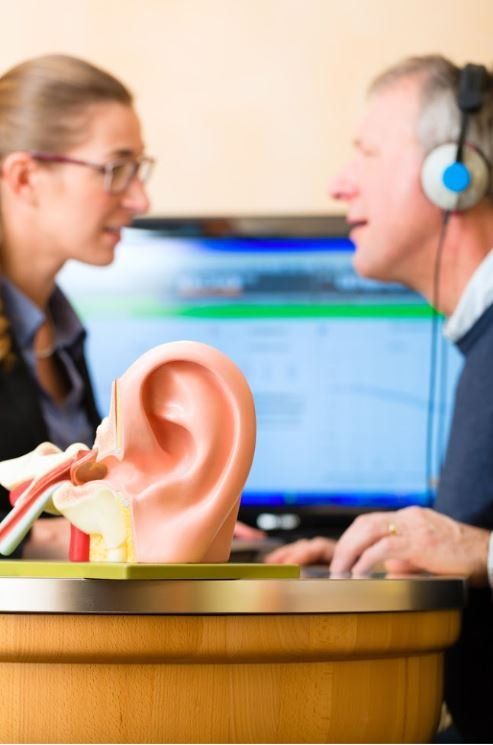Have Vertigo and Hearing Loss? Check for Meniere's Disease
- By Admin
- •
- 18 Dec, 2019
- •

If you have experienced hearing difficulties and bouts of vertigo, then you should visit your doctor and an audiologist to see if you have Meniere's disease. Meniere's disease is an inner-ear disorder that isn’t curable, but its symptoms are manageable. Read on to learn more about this condition's symptoms, causes, diagnosis, and treatments.
What Are Some Symptoms of Meniere's Disease?
The organ in the inner ear, known as the bony labyrinth, contains fluid (endolymph) that helps your body maintain a sense of balance. Meniere's disease can cause an abnormal amount of this fluid, which, in turn, causes you to lose your sense of balance. You may feel dizzy and, in some cases, nauseous.
Instead of having gradual hearing loss, people with Meniere's may notice that their hearing comes and goes. Eventually this hearing loss can become permanent. Along with hearing loss, you may also suffer from tinnitus. Tinnitus causes the perception of ringing or buzzing in your ears. Your ears may also feel like they are full or blocked.
People with Meniere's disease can often identify triggers that make their symptoms worse. For example, secondary illnesses, stress, certain foods, and fatigue can exacerbate your symptoms.
What Causes Meniere's Disease?
Unfortunately, this disease has no known cause. A genetic link is possible as it tends to run in families. Meniere's disease can start at any age, but it usually develops in young adulthood. Factors that may increase your risks of developing this disease include:
- Frequent viral infections
- Poor immune system
- Improper fluid drainage due to anatomic abnormalities in the ear canal
Since the causes of Meniere's disease are so nebulous, get a diagnosis.
How Does a Doctor Diagnose Meniere's Disease?
Your doctor will want to rule out any other possible causes for your hearing loss, such as:
- Excessive noise exposure
- Viral infections, like measles
- Meningitis
- Head injuries
- Too much ear wax
Your doctor may order bloodwork or imaging scans to rule out these disorders. Your doctor will also check that you've had at least two episodes of vertigo that have lasted at least 20 minutes.
He or she can have you undergo balance tests. For example, you could undergo a videonystagmography (VNG) or rotary-chair testing. In a VNG, the doctor will link sensors in the inner ear to muscles that control eye movement. The doctor will then have you move your head while focusing on one point.
Like a VNG, the rotary-chair test measures your inner eye function based on your eye movement and focus. Both tests can help your doctor figure out if your vertigo is related to an inner ear problem.
Your doctor may also recommend that you see an audiologist to verify hearing loss. During a hearing test (audiometry), an audiologist will test how well you can detect sounds at various pitches.
How Do You Manage This Condition?
If you are diagnosed with Meniere's disease, you may be frustrated with the unpredictable bouts of vertigo and increasing hearing loss. However, you can do lots of things to treat this disorder. Your audiologist can fit you with hearing aids so that you can still participate in day-to-day activities without struggling to hear others.
Your doctor may also recommend anti-nausea medications and anti-motion sickness medications, which can help you reduce nausea during vertigo episodes. You can also look into positive pressure therapy. During this therapy, your doctor will apply pressure to the middle ear to reduce fluid buildup. This therapy can improve your balance and decrease your vertigo episodes.
Lastly, a change in your diet can work wonders. You may also need to limit foods that contain:
- Monosodium glutamate (MSG)
- Caffeine
- Salt
- Chocolate
Make sure that you drink water so that your body doesn't get dehydrated and overcompensate by retaining water. Since too much fluid retention can increase symptoms, your doctor may also recommend medications (diuretics) that can reduce fluid retention. Reducing your sodium intake can especially reduce water retention.
Contact an audiologist today to learn more about Meniere's disease and how to manage it. Contact us at Accurate Hearing Technology for more information about hearing assessments.
Contact Information
- Mon - Thu
- -
- Friday
- -
- Sat - Sun
- Closed






